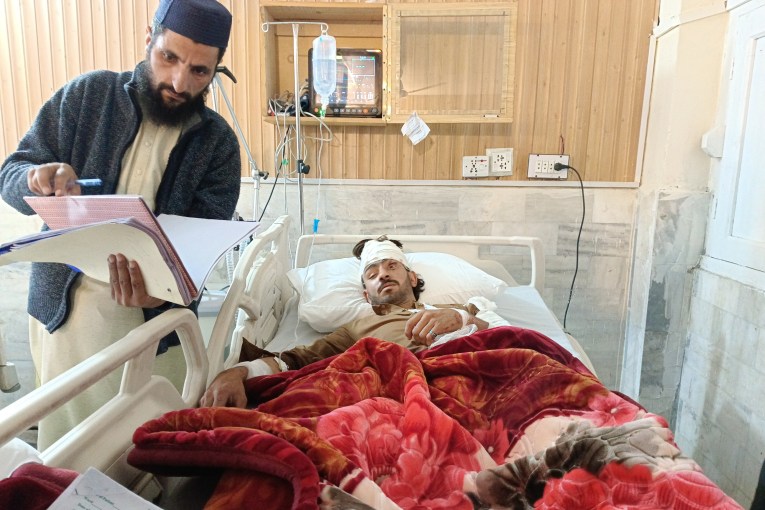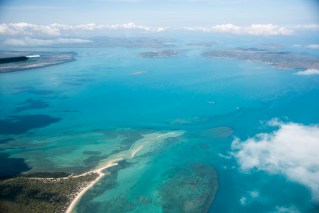If Australia’s COVID inquiry won’t look at how the states responded, what will it examine?

Australia’s COVID-19 inquiry doesn’t possess the power of a Royal Commission and won’t examine the pandemic response from states and territories – so what answers will it offer?
Prime Minister Anthony Albanese announced the inquiry into the COVID-19 pandemic on Thursday, which will be led by an independent panel, but it will exclude “actions taken unilaterally by state and territory governments”.
Dr Diego Silva, a senior lecturer in bioethics at the University of Sydney School of Public Health, said for the exercise to be considered comprehensive both federal and state responses to the pandemic should be investigated.
“The challenge for the federal government is one of jurisdiction, and whether it calls into question or asks questions around how states behave versus the federal government,” he said.
“It is best to look at this holistically, keeping in mind the division of powers that exist in Australia’s federated system.”
According to the federal government, the inquiry will consider:
- The acquisition of vaccines, treatments and medical supplies
- Mental health support for those impacted by the pandemic and lockdowns
- Financial support for individuals and businesses
- Assistance for Australians abroad
- How to respond to future pandemics, and
- The co-ordination of national cabinet.

The acquisition and provision of vaccines will be examined by the inquiry. Photo: AAP
Professor Ross Gordon, a member of the WHO technical Advisory Group of Behaviour and Insights Science, said he was disappointed that behavioural scientists weren’t mentioned.
“We had to change people’s behaviours to get them to test, isolate, wear a mask, physically distance, wash their hands, and get vaccinated,” he said.
“I would strongly encourage the Australian government to include experts from across the behavioural sciences such as social marketing, social psychology, behavioural economics, and human anthropology in the forthcoming inquiry.”
‘Constructive, rather than destructive’
Robyn Kruk, a former Director-General of the NSW Department of Health, Professor Catherine Bennett, Chair of Epidemiology at Deakin University and Dr Angela Jackson, a health economist, have been appointed to the independent panel conducting the inquiry, which will hand down a report by September30, 2024.
Albanese said it is important to ensure the “process of learning from the pandemic is constructive, rather than destructive.”
“One of the things that didn’t help during the pandemic was the sort of activity like when the federal government supported Clive Palmer’s legal case, rather than support Mark McGowan and the actions that the WA government were taking,” he said.
“We need to make sure that this is forward-focused and consider all of the Commonwealth responses to the pandemic.”
The states and territory leaders played a major role in the pandemic response, making decisions on lockdowns, vaccine rollouts and other measures to curb the spread of coronavirus.
Opposition Leader Peter Dutton quickly took aim at the government for failing to include the states’ responses to the pandemic in the inquiry, labelling it “a broken promise”.
“Australians heard the Prime Minister, when he was opposition leader, very clearly before the election, when he said that there needed to be an inquiry to get to the bottom of the decisions made during the course of COVID,” he said.
“It’s clear that either the Prime Minister has been rolled here by Daniel Andrews and the Premier of Queensland, or the Prime Minister is just happy to make a mockery of his own words before the election.”
When campaigning before the 2022 federal election, Albanese said “[a] royal commission or some form of inquiry, that will need to happen,” and a Labor-led Senate committee chaired by Finance Minister Katy Gallagher recommended “a Royal Commission be established to examine Australia’s response to the COVID-19 pandemic to inform preparedness for future COVID-19 waves and future pandemics.”
Inherently political
A lack of bipartisan support may impede the inquiry, but Silva said he doesn’t believe examining government decisions made during the pandemic can be free from politicisation.
“When people say it ought not to be politicised or we should only pay attention to the science, what’s really critical is that science is clearly a necessary component to this, but that response to the pandemic, infection and outbreaks are necessarily valued,” he said.
“We can’t avoid having public deliberation about what are the values that we want espoused during times of emergency.”
Former PM Scott Morrison has said he will not appear before the inquiry if the actions of state and territory leaders aren’t examined.

Scott Morrison led Australia through the beginning of the pandemic. Photo: AAP
Silva said it is also important that the inquiry investigates how risk communication and public trust in the government is managed.
“Success of your ability to build trust during peacetime is amplified or exemplified during an emergency,” Silva said.
“Engaging with communities and stakeholders beyond medical professionals, beyond economic experts, is going to be critical.”








